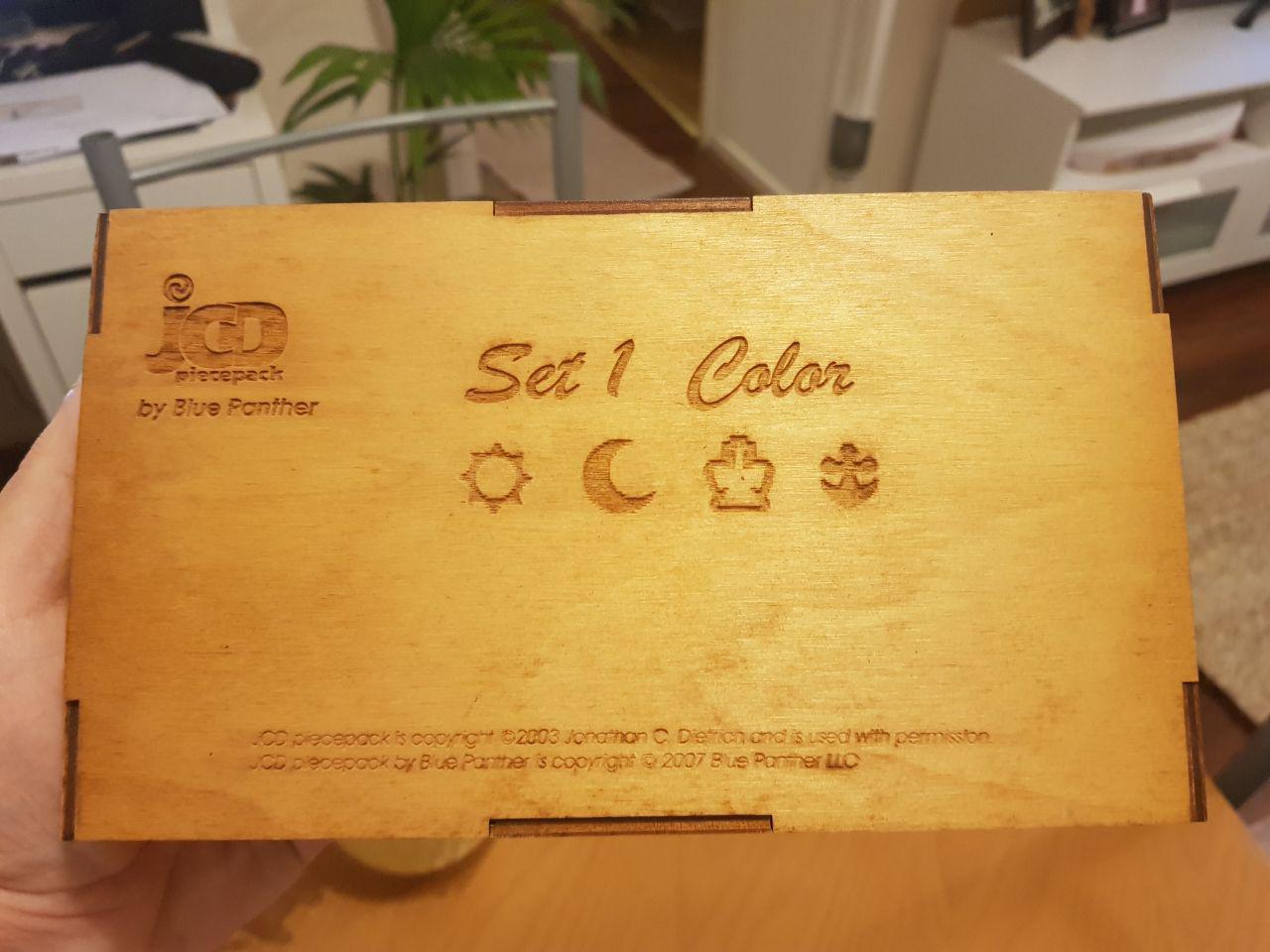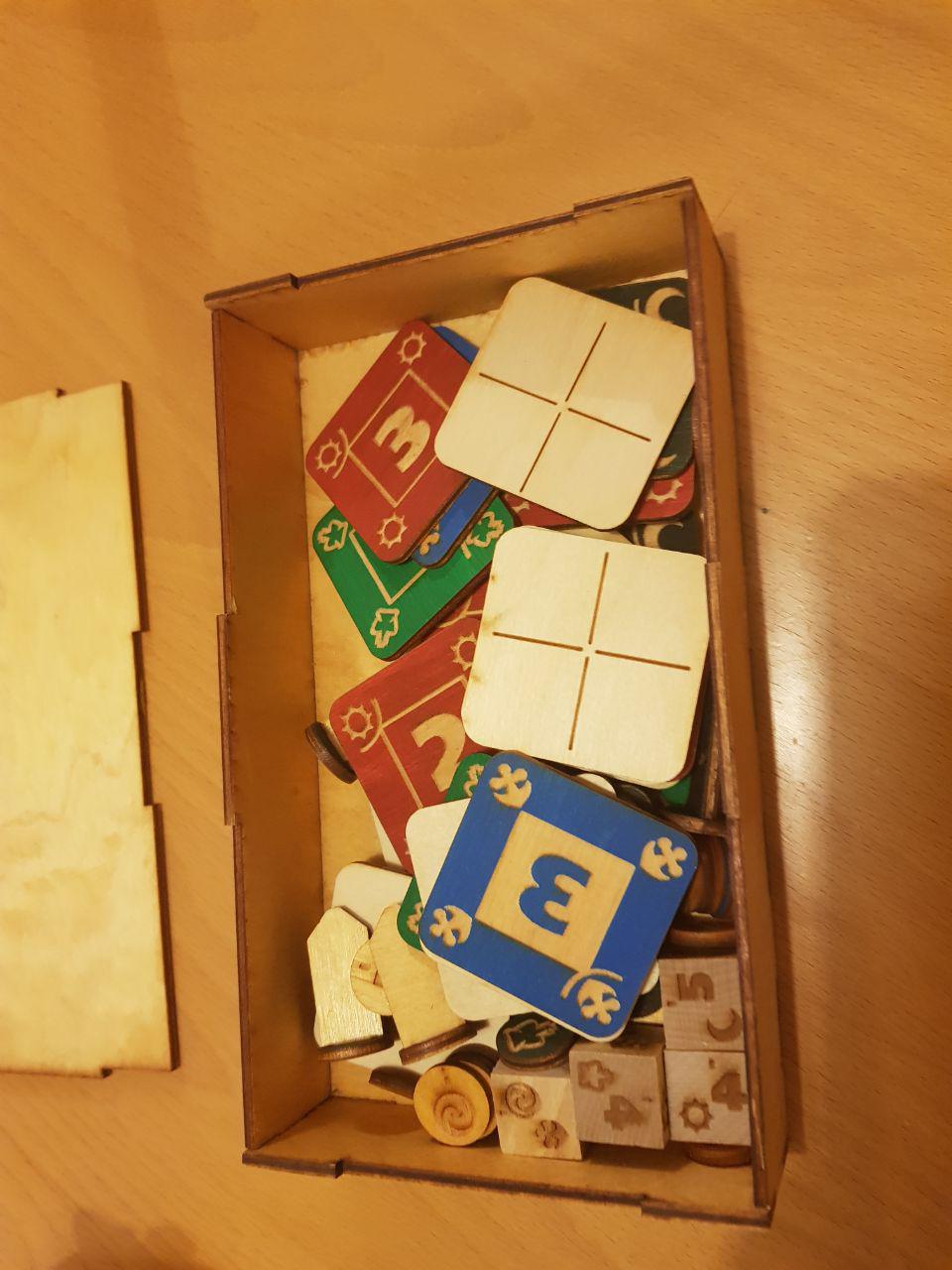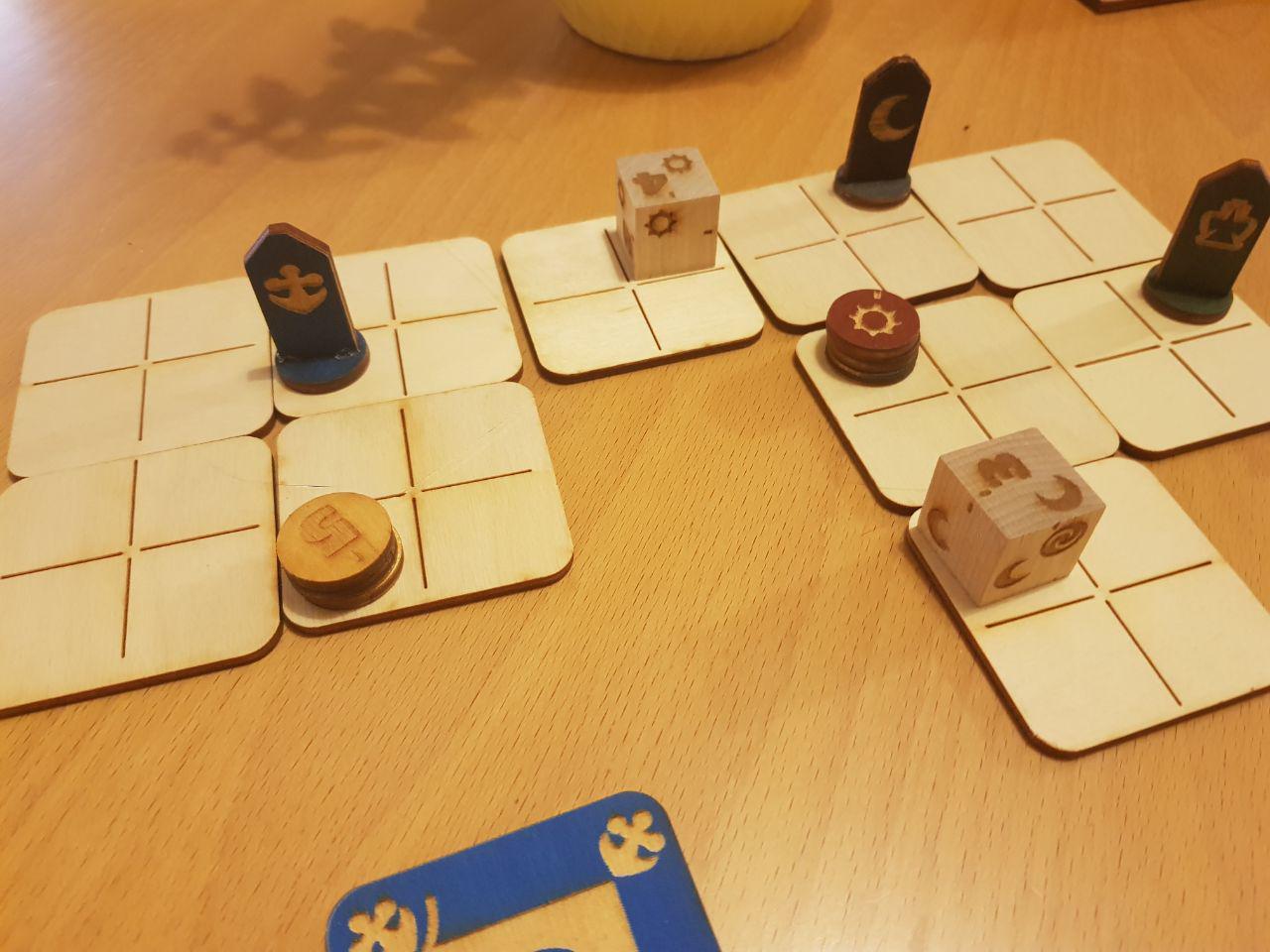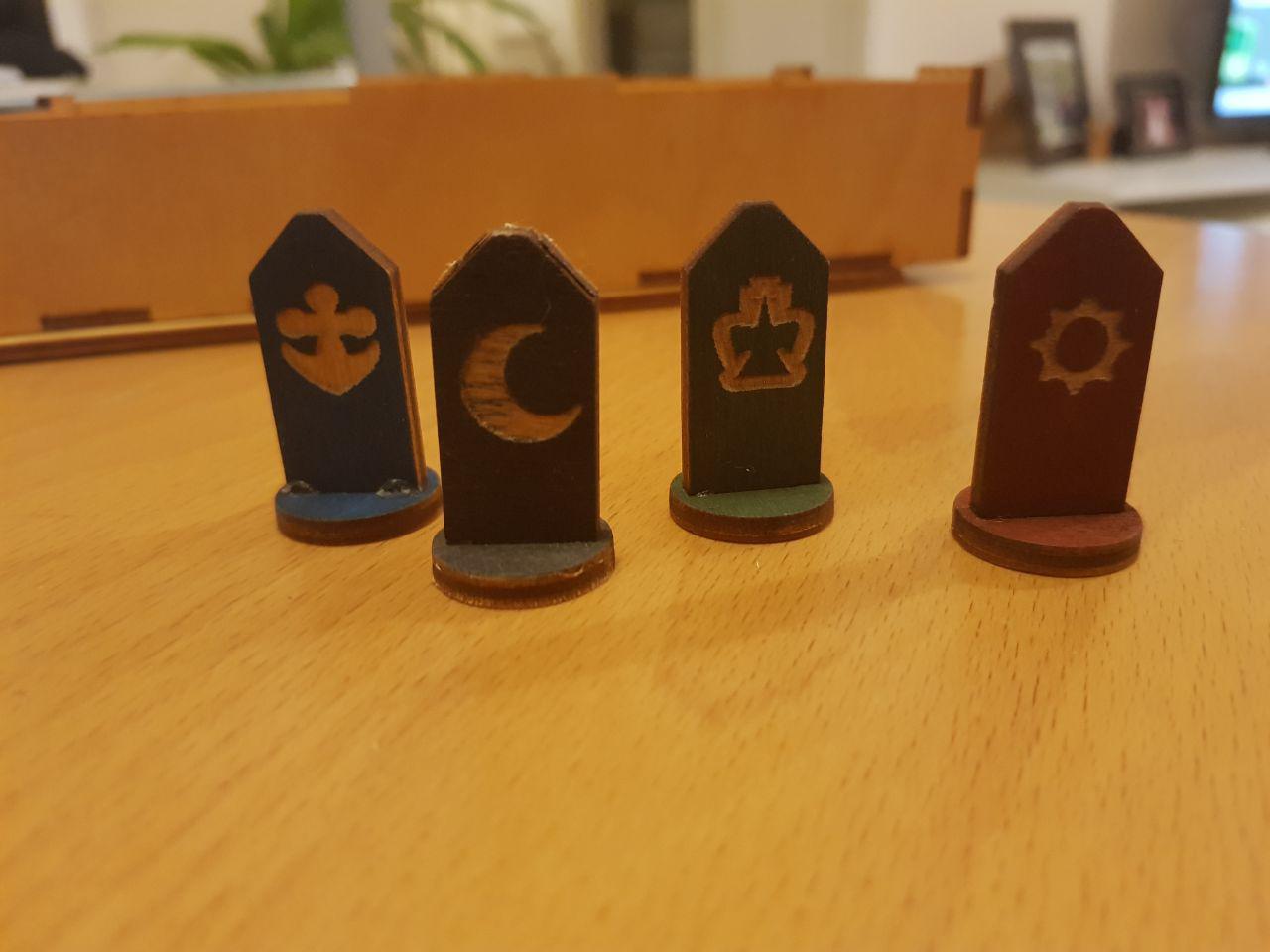Piecepack, or, the infinite board game
Posted
Today I want to share with you all something that is very dear to me. Something that is not related to programming or anything computer related. Today we’re going to talk more about board games. We’re going to talk about one specific board game that has captured my imagination for the past 15+ years. It is called Piecepack and it is not really a board game at all.
Piecepack is a toolkit. As they say say:
Flexible. Portable. Affordable. Public domain. The piecepack is a set of boardgame parts that can be used to design and play a wide variety of games. Anyone may design and publish a piecepack rule set. Any manufacturer or individual may produce piecepacks. — Source: Piecepack Frequently Asked Questions
So piecepack is a toolkit in a spirit similar to Creative Commons Content and Open Source Software that can be used to play multiple games. Have you ever stopped to think about how flexible a standard deck of playing cards is? Playing cards are simple, you have four suits, 52 cards and infinite possibilities. Piecepack aims to do for board games what playing cards did for card games.
The toolkit comes with:
- 24 tiles (square):
- one tile per suit/value pair
- suits are Suns, Moons, Crowns, Arms
- values are null, ace, 2, 3, 4, 5
- faces are marked with value at center and a small suit symbol at top-left, both in color to match suit
- backs are marked with small black crosses to suggest a division into four square quarters
- 24 coins (round):
- one tile per suit/value pair
- suits are Suns, Moons, Crowns, Arms
- values are null, ace, 2, 3, 4, 5
- faces are marked with value in black (aces are spiral symbols)
- backs are marked with suit in appropriate color
- both fronts and backs are marked with a small mark near the edge to indicate direction
- 4 dice (cubic):
- one die per suit
- suits are Suns, Moons, Crowns, Arms
- values on each die are null, ace, 2, 3, 4, 5
- die sides are marked with value in color to match suit
- 4 pawns (non-specific shape):
- one pawn per color
Thats it. Since Piecepack is in the public domain, there are a number of vendors selling physical copies but you’re totally encouraged to make/print your own as well. I have a physical one that I purchased probably 15 years ago, it is one of the few games I took with me when I moved to the UK.
As you might have noticed from the component list above, just like playing cards, the items in a piecepack kit are abstract. By using components that are not really tied to a theme or concept, players and creators are free to develop games in any way they see fit.
The competitions
What I think makes piecepack great is not only the idea behind it but that the community around it used to promote game development competitions. These contests were fun and led to the creation of many clever games as the contests would always have a theme or mechanic behind it. The piecepack wiki currently lists over 200 games, many of which were created during those contests.
I remember that there was a table cloth with the piecepack logo. Each winner in a competition would receive the table cloth by mail to sign their name on it. The winner of a competition was responsible for organizing the next one and passing the table cloth to the next winner. It was amazing to see them filling the blank space and kept a community of creators having a ton of fun.
I’ve just checked and the competitions are still going, there is a new one whose deadline is 15th of July 2020, so maybe you, dear reader, can be the next winner.
A flexible, self-contained, system
Most piecepack kits fit in a little bag or in a box like mine

The closed box

The stuff inside the box
My kit is made on a laser cutter and hand painted, the components look gorgeous:

The components
All the items in a piecepack kit serve more than one purpose. The cards can serve like playing cards but flip them on the other side and you can assemble a board. I remember some rules for roguelike games.

It can look like a roguelike
The dices and the coins have little ticks in them that help to place them pointing at some direction.

Look at the details on the coins

The cards

The pawns
Thanks to this flexibility you can create all sorts of games using all or just a subset of the items. I’ve seen games using only the dices and coins, and others using all the items.
It is a wonderful kit to explore creativity
I think this kit is useful beyond playing games with your friends. You can do solo games. You can create your own games. With a kit like this the friction and gap between player, prototyper, modder, and game developer are blurred. You can remix rules from the wiki. You can make it your own.
 😻 Piecepack, or, the infinite board game 🎲 * Public domain. * Infinite possibilities. * A toolkit for creativity. cc #piecepack #boardgames #gamedev #bbg 👍 😻 Piecepack, or, the infinite board game 🎲 * Public domain. * Infinite possibilities. * A toolkit for creativity. cc #piecepack #boardgames #gamedev #bbg 👍
😻 Piecepack, or, the infinite board game 🎲 * Public domain. * Infinite possibilities. * A toolkit for creativity. cc #piecepack #boardgames #gamedev #bbg 👍 😻 Piecepack, or, the infinite board game 🎲 * Public domain. * Infinite possibilities. * A toolkit for creativity. cc #piecepack #boardgames #gamedev #bbg 👍